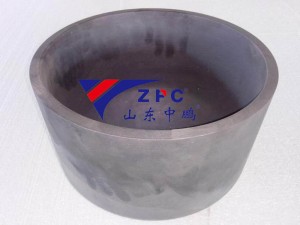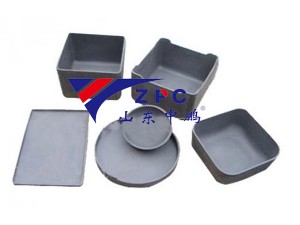Reaction bonded silicon carbide cruciblesrepresent a breakthrough in refractory technology, offering unparalleled performance in extreme thermal environments. These advanced ceramic containers have become indispensable across metallurgy, precision casting, mechanical engineering, and chemical processing industries, delivering superior functionality where traditional materials fall short.
Core Technical Advantages
RBSC crucibles outperform conventional alumina and graphite counterparts through:
- Exceptional thermal conductivity (120–150 W/m·K at 1000°C)
- Ultra-low thermal expansion coefficient (4.5×10⁻⁶/K)
- Thermal shock resistance withstanding 50+ rapid cooling cycles (1600°C→25°C)
- Acid/alkali corrosion resistance (pH 0–14 compatibility)
- Oxidation stability in air up to 1650°C
Metallurgical Mastery
In alloy steel production and non-ferrous metal smelting (aluminum, copper, zinc), RBSC crucibles enable:
- 20–30% faster melting rates through optimized heat transfer
- 99.95% metal purity maintenance via non-reactive surfaces
- Reduced slag formation through minimized thermal stratification
- Extended service life (3–5× longer than clay-graphite crucibles)
Precision Casting & Mechanical Applications
The crucibles’ unique mechanical properties support demanding industrial requirements:
- Sustained structural integrity under 15–20 MPa mechanical stress
- Consistent dimensional stability (±0.1% volumetric change at 1500°C)
- Contamination-free processing for aerospace-grade components
- Reliable performance in centrifugal casting systems
Chemical Processing Excellence
RBSC crucibles address critical challenges in chemical synthesis:
- Safe containment of molten salts (e.g., NaOH, KNO₃)
- Stable operation in sulfidation/chlorination reactions
- Corrosion resistance against HF up to 800°C
- Purity preservation in rare earth element extraction
Operational Economics
While initial costs are 40–60% higher than traditional crucibles, RBSC solutions deliver:
- 70% reduction in replacement frequency
- 25–35% energy savings through improved thermal efficiency
- 90% material recyclability via thermal reclamation
- Near-zero maintenance requirements
Industry-Specific Innovations
1. Titanium Alloy Production
- Withstands reactive Ti melts at 1700°C
- Prevents carbon pick-up contamination
2. Battery Material Synthesis
- Enables uniform LiCoO₂ cathode processing
- Resists lithium salt corrosion
3. Semiconductor Crystal Growth
- Maintains ultra-high vacuum compatibility
- Eliminates silicon carbide contamination
Future-Forward Design
Modern RBSC crucibles incorporate advanced features:
- Gradient porosity structures for controlled gas permeability
- Nanoscale surface coatings enhancing slag resistance
- Embedded thermal sensors for process monitoring
From laboratory-scale research to industrial mass production, reaction-bonded silicon carbide crucibles continue to redefine thermal processing capabilities. Their unique combination of thermal, mechanical, and chemical properties positions them as the crucible of choice for next-generation high-temperature applications, driving efficiency and quality improvements across multiple advanced manufacturing sectors.
Post time: Mar-20-2025

